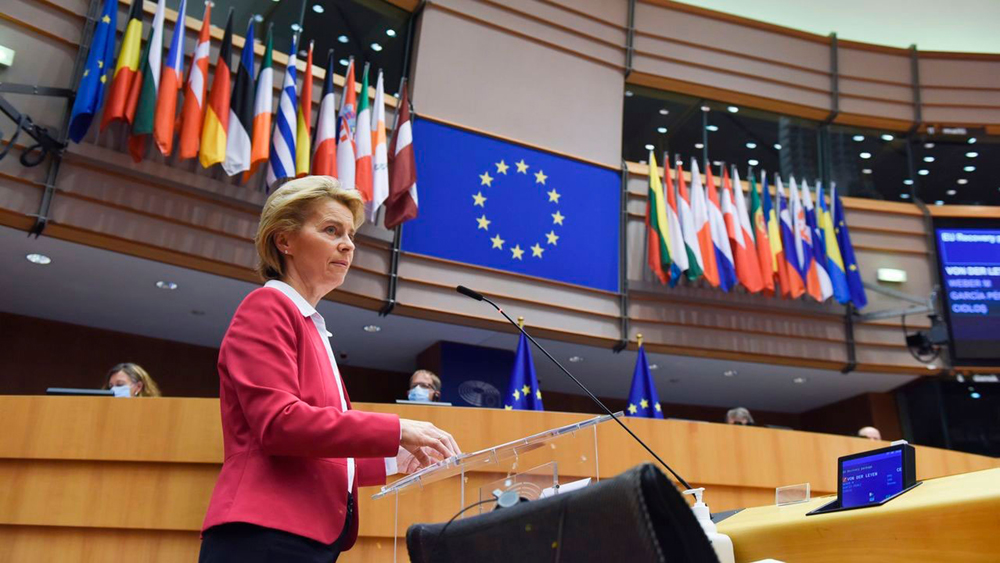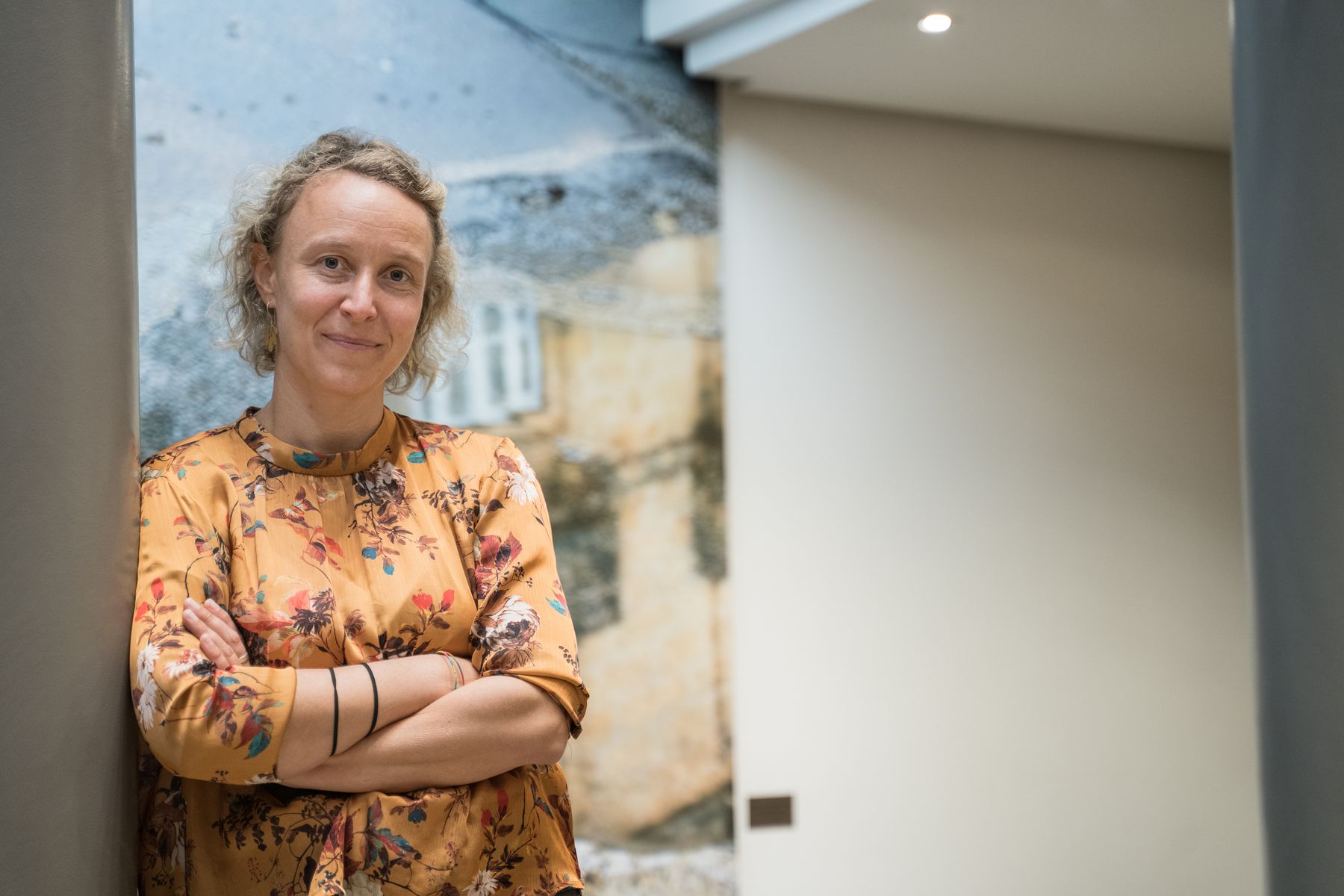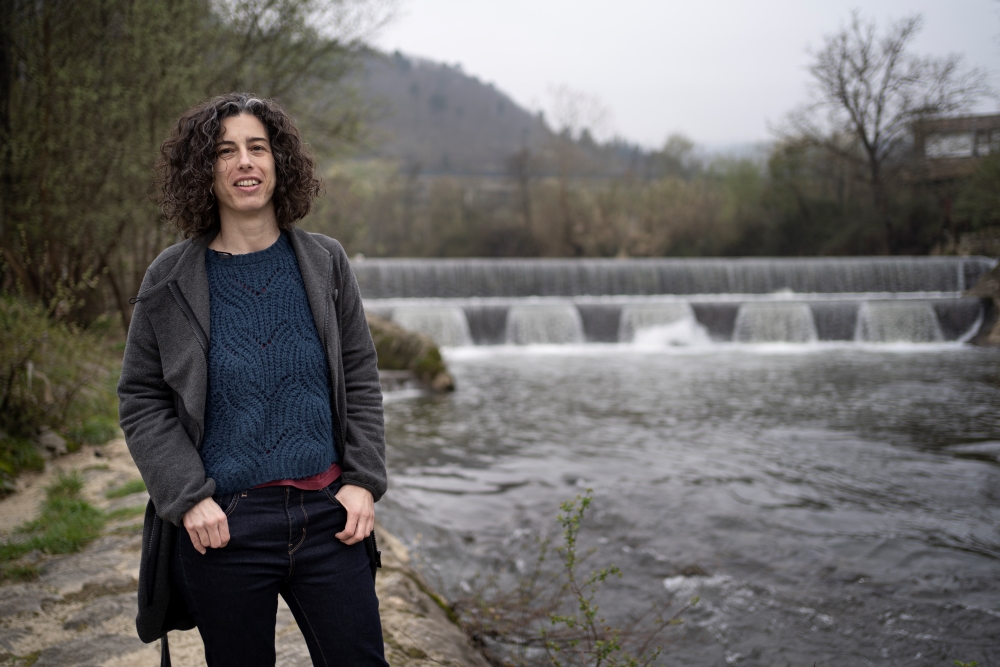What we leave behind future generations in debt
- The countries of the European Union will mobilise a great deal of money to deal with the coronavirus pandemic. The Next Generation EU Plan, which has a budget of EUR 750,000 million, aims to carry out an ecological and digital transition. But does the projects presented have anything to do with these objectives? How have they been selected? And to what logic and at what price will Europe give aid?

"This plan, the great challenge we face, makes it an opportunity, not only helping recovery, but also investing in our future: The European Green Treaties and digitisation will boost employment and growth, as well as the resilience of our societies and the health of the environment. This is Europe’s time.” With these words, last May, the President of the European Commission, Ursula Von der Leyen, presented the Next Generation EU Plan (NGEU) designed to deal with the economic crisis generated by the pandemic. Authorities across Europe have called for the "opportunity" of this unseen leap of millions to be exploited. But there are a lot of people who fear that the multinational is green and shielded from money, while citizens and public services suffer the debts that affect them.
The total UAMPA budget amounts to EUR 750,000 million, which seems a lot, but which is only a small part of the European Union’s GDP. Hence, EUR 339 billion will be transfers or non-refundable direct aid, which will be granted between 2021 and 2024, and the rest (EUR 360 billion) will be provided until 2026, i.e. the most
important item devolver.La will be allocated to the Recovery and Resilience Mechanism, which accounts for 90% of the total budget (EUR 672.5 billion) and is dedicated to investing and reforming green transition projects. The European Commission has recommended that reforms or investments be carried out in seven areas, including renewables, 5G technology or digitisation of education.
The funds will be fully conditional from the start, it is one of the main criticisms to the ICU
The European Union (EU) has applied a method to determine the amount of money to be provided to each of the Member States, taking into account the growth and unemployment rates of the last five years. In this regard, he recalled that the Spanish State would receive the most money: EUR 140,000 million. Of these, 79.796 million would be transfers – 46 billion between 2021 and 2022 – and close to 68 billion would be loans. The French State, for its part, would receive EUR 42.302 million, which in this case would be a capital loan. Spain, Italy, France and Poland will contribute 60% of the fund.
The Basque Government, through the Euskadi Next 2021-2026 programme, which includes 188 projects, has expressed its “objective” of achieving 5,702 million euros from the Resilience and Recovery Mechanism. Hydrogen aisle, gigas factory for electric vehicle batteries… Petronor, Iberdrola and many large automotive companies are behind these projects. The Government of Navarra, for its part, has planned 125 projects under the Nafarroa Suspertu programme with a budget of EUR 3,419 million, without specifying how much money it would receive from European funds, including the TAV, the second phase of the Canal de Navarra and similar infrastructures. We have analyzed the projects of both communities in two articles to complete this report. The Single Community of Iparralde has not yet submitted any concrete project for the UGGEU, according to sources from the institution explained to Argia.
So far the data. But in what time, conditions, selection process and logic will this new Mr. Marshall arrive at our stations? We will detail them in the following lines. In any case, you can already see the runway of this plan from the open air: entering into structural crisis in recent years, they want us to believe that it is possible to have a more inclusive, human and green capitalism – as we have just heard in Davos – arguing for technological advances, ignoring a fundamental contradiction: producing more and more does not stifle the energy hunger that the satisfaction system has. But let us not go ahead with the conclusions.
“No, as long as I live”
Many remember that in June 2012, amid the previous economic crisis, German Chancellor Angela Merkel said there would be no eurobonds as long as I “live”. Almost a decade later, he had to swallow those words, because the European Union is issuing debt. What happened? The earthquake caused by the Covid-19 pandemic has changed everything, as there has been no such shipwreck since the Second World War. “I was a banker and I have never seen it – explained Luca Bonarcossi, an expert in sustainable finance and an environmental activist. In the previous crisis we knew that the problem was banks, but with the coronavirus… will we have to live with this for years?”
Bonarcossi launched his analysis on the journey to the bowels of the Next Generation EU, organized by ODG, Ekologistak Martxan and Omal, in which the reader will find a Spanish talk on the internet. Italy’s example is that the country with the world’s second-highest public debt would be broken without this European recovery plan and “the fact that Italy did not settle its debts would not resemble Greece, would be the end of the European Union”. Hence Merkel's change of mind, to prevent collapse.
According to the International Labour Organization, by 2020 working hours were reduced by 8.8% worldwide and 255 million jobs were destroyed, four times more than the 2008 crisis. Job losses have affected the most precarious sectors, especially temporary or part-time contracts – usually young people and women. We have been told that the coronavirus crisis is “exogenous” of the economy, and that after this will come the recovery in the form of V: “Yes, we’ve been told that for this to happen, investments need to be made in the so-called 4.0 revolution,” says economist Paul Llonch. But do you really think that that change of strategy is going to open up a time of growth and well-being? Can we trust?”
.jpg)
Llonch is a member of the Taifa de Catalunya Critical Economy Seminar and, according to the Realitat website, “if we want to understand what justifies the rise of capitalist digitalisation, we need to talk about productivity.” According to him, who talks about many researchers and experts, the current system can produce more services and goods, but it is not able to produce more value, and that is where the capitalists have the problem: “The investor doesn’t care if he invests in bonds, butter or cannons, he wants profit.”
Hurry and with the money of the next generations
Countries have until April 30 to present their projects for ICU. Firstly, the municipalities and the deputies send them to the Basque Government and the Government of Navarra, which will transfer them to Madrid, and finally those which the Spanish Government considers "more interesting" will arrive in Brussels. In the French state, Paris also has the last word. The European Commission will study the filter steps in two months and the European Council could approve the election work in four weeks. The first part of the aid would arrive in the second half of 2021.
Where will he get the money from? Making the largest bond issue ever seen in history. We will close the income source in 2026 and pay for that “mortgage” until 2058
Precipitation and haste have raised doubts as to management and transparency. Indeed, many administrations have used private consultants such as PwC or Deloitte to lead the process. EH spokesman Bildu in the Basque Parliament, Mikel Otero, has accused the Basque Government of “disregarding” the collaboration: “It is a strategic error, because the hierarchy of the projects to be financed with European funds should decide among all of us, in an auzolan way, and then make a joint defence in Madrid.” Since EH Bildu state that many of the 188 projects presented by Iñigo Urkullu’s Executive can agree, but always “putting clear conditions on public-private partnership to ensure social benefit.”
And where will he get the money from? Making the largest bond issue ever seen in history. In 2026, the source of income will be closed and the “mortgage” generated by public debt securities will begin to be paid until it is depreciated in 2058, three decades hence. To this end, the European Union has proposed the introduction of new taxes – taxes on carbon, plastic or digital – but tax policy has never been a consensus among European countries, which seems to be a blind road. A consequence? More public debt and social cuts. “The money we are going to spend is not ours, it will be paid by the next generation, those who are now 15 years old and mobilize for the climate, so they have called it Next Generation,” says Bonarcossi.
.jpg)
Strength shirt
During the 2008 crisis, the Troika (European Central Bank, International Monetary Fund and European Commission), which imposed on the “rescued” countries very harsh measures in exchange for money, dressed in black. But on this occasion it will not be necessary: the projects to be supported will be fully conditional from the outset. This is another major criticism made of the ICU, in which ALS has placed special emphasis. For the trade union, it is not a question of discussing the fate of the funds: “The model is clear: loans and transfers in exchange for structural reforms and budgetary austerity.”
Support from the Resilience and Recovery Mechanism would be approved within the “European Semester”. In the first six months of the year, Member States adjust their budgets to the EU's objectives. In this process, the European Commission gives them “recommendations” for prioritising and designing plans, and the final recommendations are agreed at the European Council composed of ministers.
Euskal Herriak Kapitari Planto! The dynamic has denounced that European funds will be a ‘straitjacket’, the prelude to further social cuts, and that it will entail, among other measures, the dissolution of the public pension system or the maintenance of labour reform. What is more, those who are against the mutualisation of debt want the criteria of the Maastricht Treaty, which was the seed of the neoliberal Europe of the last 30 years, to be taken into account, as demanded by the German Central Bank (Bundesbank) in its latest bulletin. “Below you will remind us that we live above our possibilities and that adjustment policies are essential to deal with excess public debt,” said Pello Igeregi of ELA in Galde magazine (pdf).
It remains to be seen whether the pandemic leads us to a new social organization between capital and the workforce, but at the moment only the old schemes are being repeated, framed on the flag of ecological and digital transition. On the contrary, “extremism cannot be separated from so-called green capitalism,” says LLonch, which will not only exacerbate the climate emergency, but will also bring more austerity and precariousness to future generations.
Abrupt closure of the grant window for energy-saving construction works in homes. Imagine the anger of those left in the queue. Architects, builders, community managers, neighbours… The call for proposals was in force until November, but recently the Basque Government... [+]
Nicola Scherer (Munich, 1984) Kataluniako Observatori del Deute en la Globalització (Zorraren Behatokia Globalizazioan) erakundeko ikertzailea eta Open Generation EU taldeko kidea da eta Kapitalari Planto! plataformak ekainean aurkeztu zuen Europako berreskuratze-funtsak:... [+]
This is what the most ambitious programme of public debt has been in the plans, which will distribute equal shares of grants and loans worth EUR 750,000 million over the next 7 years. Alongside the revival of Europe, it aims to promote a greener economy (energy transition) and... [+]
























